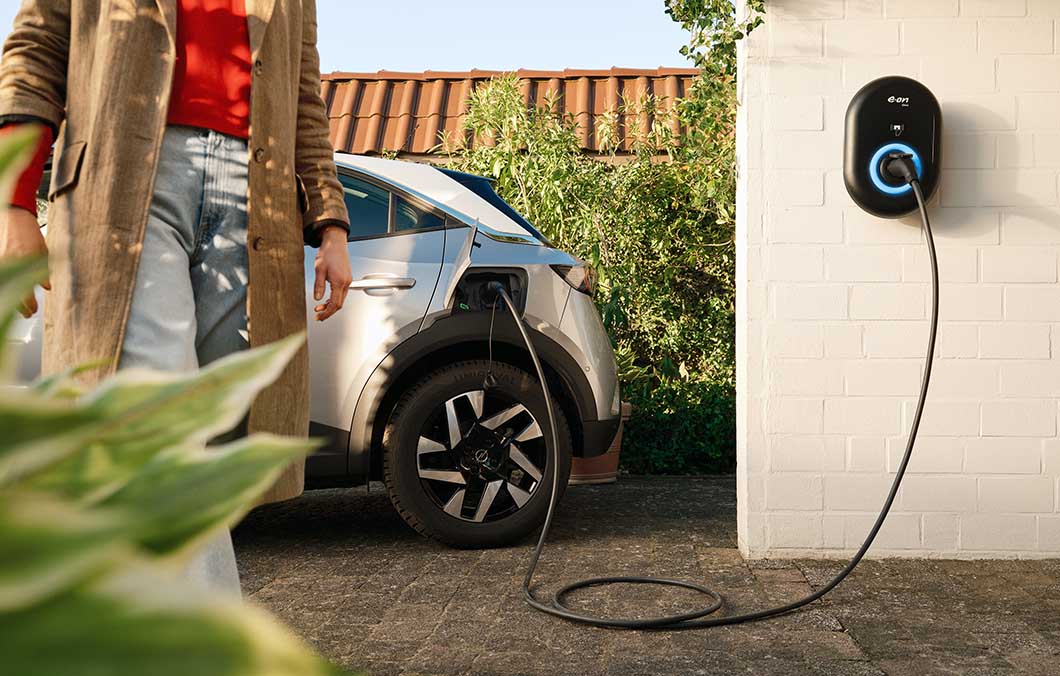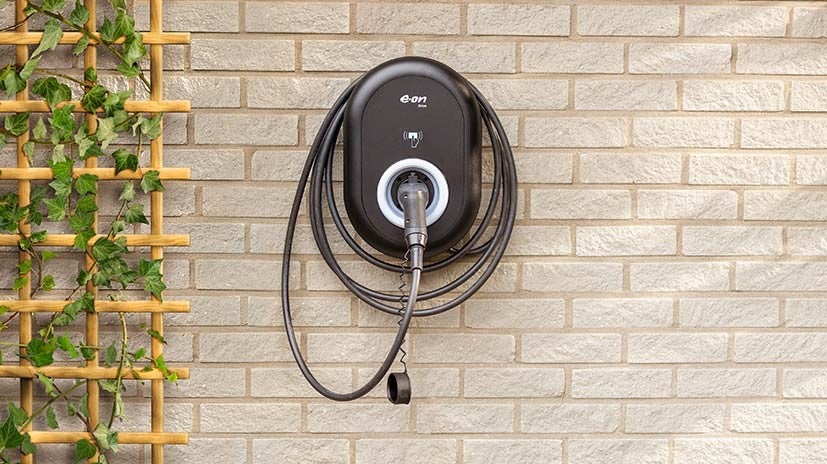How much do EVs cost to charge at home? All your electric car charging questions answered
Everything you need to know about charging an electric car at home in 2025

The Independent's Electric Vehicles Channel is sponsored by E.ON Next.
Understanding how an electric car charges can feel daunting. Different EVs charge at different speeds, for a start, and different EV charge stations also have different abilities (not to mention different prices, too).
EvenTas we head into 2025 and the EV market is more mature than ever before, there’s still a lot to get our head around. But thankfully, once you’ve got to grips with EV charging you’ll wonder why you hadn’t made the switch sooner. No more fuel smells, no more spilling petrol on your shoes – and, best of all, the ability to have a full battery every morning, cheaply, thanks to charging at home.
It’s also worth highlighting, right from the off, how electric cars can be much, much cheaper to run than the equivalent petrol or diesel car. Some EVs can also charge very quickly indeed, filling their batteries from 10 to 80 percent in under 20 minutes, providing they’re plugged into a powerful charger. And, while EVs charge more slowly at home, the costs are significantly lower, with a full battery costing as little as £5.
Another key benefit of EVs to remember is, if you plug your electric car in each night, the battery will be full every morning – and you can even set the car to warm or cool its interior, so that it’s at just the right temperature when you get in.
Are EVs slow to charge?
This depends on how the EV is charged, and what its maximum charge rate is. Plug a fast-charging EV like the latest Porsche Taycan into the fastest public charger you can find, and it’ll fill its battery at up to 320 kW, which means a top-up from 10 to 80 percent can take just 18 minutes.
However, plug that same car into a 7 kW wallbox charger at home, and you’re looking at 12 hours for a complete fill, or 22 hours if you only have a less powerful 3.6 kW charger. Use a three-pin domestic socket, which is possible with just about all EVs, and the Taycan will take over 30 hours to fill its battery – helpful in an emergency, but not the right approach to charging for most drivers.
Most mid-market electric cars have a maximum charge rate of between 100 kW and 200 kW. Broadly speaking, if you plug into a charger that delivers electricity at the same rate, the battery will fill from 20 to 80 percent in about 20 to 40 minutes.
Are EVs expensive to charge?
Public chargers can be much more expensive than charging at home. They are priced per kWh and in many cases the cost is around £0.60 to £0.90. Taking the Volvo EX30 and its 69 kWh battery as an example, a full charge at £0.79 per kWh (a common price at high-speed public chargers) would cost £54.50 and give you a real-world range of around 200 to 250 miles. This makes EV motoring more expensive than using fossil fuels, but as EV sales increase this should encourage healthy competition between the charging networks, and prices could start to fall.
Some charge networks offer monthly subscriptions that lower the cost of energy. For example, using a rapid charger from Ionity costs £0.74 per kWh at the time of writing (December 2024), but if you pay £5.49 per month this rate falls to £0.59 per kWh. Pay £10.50 a month and power costs £0.43 per kWh. Similarly, the BP Pulse charge network has a £7.85 monthly subscription that reduces the kWh rate by 20 per cent.
Cheaper (and slower) options already exist, such as chargers attached to street-side lamp posts. These cost from as little as £0.40 per kWh and are a good option if there’s one near you that you can plug into overnight. Their prices tend to vary throughout the day, with the cheapest electricity available between midnight and 7am. Plug the same Volvo EX30 in during those off-peak hours and a full charge will cost a far more reasonable £28.
Are EVs cheaper to charge at home?

Charging at home can be very cheap. In every EV review by The Independent you’ll find the estimated cost of 100 miles of range when using the E.ON Next Drive tariff, which currently costs from 6.7p per kWh. For many EVs, this 100 miles of range costs less than £2, and a full charge will often cost around £5 – far cheaper than filling with petrol or diesel, and also much more affordable than using a public charger. Again using the Volvo EX30 as an example, a full charge using the E.ON Next Drive tariff would cost just £4.60 – less than a tenth of the cost of a high-speed public charger.
How much do home EV chargers cost to install?
When it comes to installing a home EV charger, there are lots of different models to pick from. Some have more features than others, some are more compact, and some command a premium for their up-market, customisable design. Taking E.ON Next as an example, the company offered three models of home charger.
They all have a power output of 7.4 kW and carry a standard price of between £1,029 and £1,079, based on a standard installation. Lower prices – of between £979 and £999 – are available exclusively to E.ON Next customers.
Home charging is usually slower than public charging. Charge speed is measured in kilowatts (kW), with each car and each charger capable of its own maximum charge rate. For cars this maximum rate is usually somewhere between 100 and 300 kW, depending on the model, while public chargers tend to be described as rapid when they are capable of 150 kW or higher. Some can go as high as 350 kW.
Home charging, however, is much slower. Home chargers, also known as wallboxes, tend to operate at 3.6, 7 or 11 kW, depending on the capability of the charger and of your home electrical system. If your home is fitted with three-phase wiring, a 22 kW charger might be an option, but this is rare in the UK.
Taking the Tesla Model 3 as an example, a full charge from almost empty to 100 percent takes about 15 to 20 hours using a 3.6 kW home charger, or eight to 12 hours with a 7 kW charger. That may sound quite slow, but you are unlikely to always arrive home with a flat battery, then need it to be full again as quickly as possible, every day. One of the joys of EV motoring is how regular top-ups at home, using cheap overnight electricity, mean your car will have a full battery whenever you need it, and at a fraction if
Can I charge an EV with solar panels?
Yes, since solar panels simply feed energy into your home and help power whatever’s plugged in, such as an EV. Solar panels won’t charge your car particularly quickly, but it’s entirely possible to use them and a wallbox car charger to fill your EV’s battery.




Join our commenting forum
Join thought-provoking conversations, follow other Independent readers and see their replies
Comments